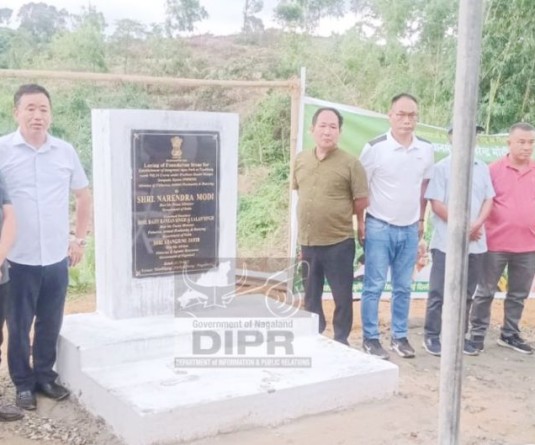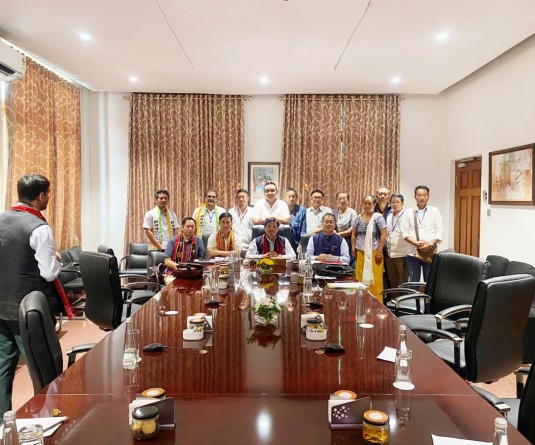
Mussoorie, July 28 (MExN): Chief Minister Neiphiu Rio today said that the mountainous and hilly Himalayan states of the country face various challenges due to its topography, harsh terrain and a number of other factors which contribute to "development disability." He urged upon the Government of India and the 15th Finance Commission to take these aspects into consideration while allocating funds to these states.
According to a press release from the Media Cell of the Chief Minister’s Office, Rio spoke at the Conclave of the Indian Himalayan Region (IHR) states hosted by the Government of Uttarakhand at Mussoorie today in presence of Union Finance Minister, Nirmala Sitharaman, Chairperson of the 15th Finance Commission, NK Singh, Vice Chairperson of NITI Aayog, Dr. Rajiv Kumar, and a host of Chief Ministers from the IHR states.
Rio reminded that the hilly and mountainous states of the country are the “sentinels of border security for the nation as all share sensitive international border with Pakistan, China, Myanmar and Bangladesh respectively which pose military and demographic security threats especially to the IHR states and the country.”
Revenue Deficit
Sharing his views on the devolution principles of the Finance Commission, the Chief Minister supported the proposal for increase of the share of taxes of states from 42% to 50% but added that in the context of Nagaland, even with this increase, Nagaland would still remain revenue deficit.
“It will only result in a corresponding reduction in Revenue Deficit Grant. Since the share of taxes tends to vary depending on actual collections, we have the apprehension that our receipts may fall below estimates even more. My state has experienced negative receipts every year of the 14th Finance Commission period,” he said.
According to the CMO’s Media Cell, Rio stated that “more benefit will accrue if the Commission agrees to fully cover the Revenue Deficit and also provide funds for critical infrastructure needs so that the infrastructure and developmental deficit we are facing are effectively addressed.”
Price paid
The Chief Minister recounted how the manufacturing sector in the State was contributing a substantial amount of Rs. 14,123 lakhs to the State’s economy comprising 6.09% of the GSDP up to the year 1997-98. This suddenly dropped to Rs. 6402 lakhs in 1998-99 and then to Rs. 3362 lakhs in 1999-2000 shrinking to 1.32% of the GSDP.
“This is attributed to the judgment of the Supreme Court in WP (Civil) 202 dated 12th December 1996 in T.N. Godavarman Vrs Union of India and Others against felling of trees in the Northeast. The manufacturing sector that was somehow emerging in the form of saw mills, plywood and veneer mills and furniture making, could never make a comeback and till today the manufacturing sector in the State hardly adds about 1% to the State’s economy,” Rio noted.
“This is the price paid by the State for the sustenance of the forest cover at the behest of the nation. It has however, never been accounted for, or compensated by any of the Finance Commissions or the Government of India.
onservation and preservation of the ecosystem is not without cost and this cost can only be understood by the people who pay the price. Their voices have therefore, to be heard with patience and appropriately redressed,” the Chief Minister added.
He suggested that it would be “more appropriate” to replace the phrase ‘Special Category States’ with ‘Indian Himalayan Region States’ in order to consider the “problems and issues faced by IHR states.”





